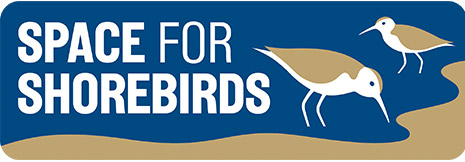The 2023 Nesting Season is Underway!
The shorebird nesting season is an extremely exciting time of the year, and our team of wildlife rangers and dedicated Coast Care volunteers are out working hard to protect nesting shorebirds on the Northumberland coast. Nesting began early this year, with the first ringed plover eggs being laid on 18th April at Buston Links. This nest was quickly followed by birds at Beadnell and Lynemouth, however all early nesting attempts failed, mostly due to high spring tides mixed with stormy seas washing the eggs. Predation has also been a cause of egg loss so far this season, with fox and dog prints being spotted inside a few of the nest protection areas, and crows have been observed taking eggs from nests.
Ringed plovers are tenacious birds, and most stayed on territory after suffering egg losses, and have now re-laid. We currently have active nests at Beadnell, Newton by the Sea, Buston Links and Amble Links, with more birds still holding territory at Embleton, Coquet Estuary and Lynemouth. It is important that these sites remain as free from disturbance as possible, as this is the best way we can help the birds to have a successful nesting season. Disturbance causes the birds to leave their nests in an attempt to draw attention away from their precious eggs, but this leaves them exposed and vulnerable to predators or becoming chilled by the elements. If you see any of our nest protection sites on your next visit to the coast, please give the fence lots of space, and keep dogs close to you to ensure that the birds do not feel threatened.

As well as protecting nesting ringed plover and oystercatcher, it is our long-term aim to establish more safe nesting locations for little tern – the smallest tern species we see in Northumberland and the second-rarest nesting seabird in the UK. Current they only nest in two locations in the county – Lindisfarne National Nature Reserve and the Long Nanny, and working with the Northumberland Coast AONB we hope to create more safe sites for them to nest, helping to make their vulnerable population more robust. We have observed little terns prospecting a few of our nest protection areas, already established for ringed plover, so far this year, and we hope they will use these sites to safely raise their young in the future.
 A little tern
A little tern
We are eagerly awaiting the arrival of ringed plover chicks at our nest protection sites, and when they do, we will be calling on the help of our fabulous ‘Chick Watch’ volunteers to help us monitor their progress and talk to beach users about the importance of giving the birds space to raise their young. Ringed plover chicks are precocial, meaning they are not fed by their parents. Instead they must quickly learn how to forage for food, sometimes leaving the safely of the nest protection areas in search of marine worms and other invertebrates further down the shore on the wet sand. This is done all under the watchful eyes of their attentive parents who are in constant communication with their young, giving instructions on where to search for food and when to run for cover if danger is close by.
We are still seeing ringed plovers migrating through the county on their journey north from wintering grounds in Europe and southern England, and there is a very good chance that some of these birds will stay with us in Northumberland to breed. New nesting locations could be established over the coming weeks, and the Coast Care Ringed Plover Surveyors will be monitoring their local patch for signs of nesting behaviour.
 A ringed plover incubating her eggs
A ringed plover incubating her eggs
It really does take a village to raise a plover, and the kind support we have received from local residents and visitors alike has been fantastic. If you see any signs of nesting shorebirds on beaches along the coast, please do send us a message on social media, or via the contact page on our website. Please also get in touch if you would like more information about how to get involved in our nest protection volunteering opportunities through Coast Care.


